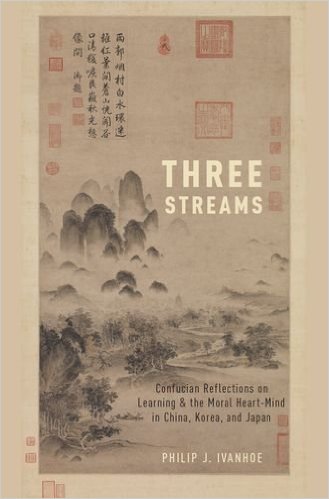
This book will begin with a brief sketch of the early Chinese origins of the concept of the moral mind in the thought of Mengzi 孟子 (391-08 BCE) and Xunzi 荀子 (310-219 BCE).
In Part One, I shall focus on two Chinese neo-Confucians from the Song dynasty: Cheng Hao 程顥 (明道) (1032-85) and Cheng Yi程頤 (伊川) (1033-1107). Following one line of traditional Chinese scholarship, I believe they are the clear precursors of what eventually became the so-called "Cheng-Zhu" and "Lu-Wang" Schools of neo-Confucian thought. I will then jump ahead to explore the thought of the Qing dynasty critic of neo-Confucianism Dai Zhen (戴震) (東源) (1722-1776).
In Part Two, I will describe and analyze the famous Four-Seven debate in 16th century Korea between Yi Hwang 李滉 (Toigye 退溪) (1501-70) and Gobong高峰 (Gi Dae-seung奇大升) (1527-1572), which was further developed between Ugye牛溪 (Seong Hon成渾) (1535-1598) and Yi I 李珥 (Yulgok 栗谷) (1536-1584), and use this to introduce Korean views about the moral mind. Then I will move on the 18th century thinker Jeong Yak-yong丁若鏞 (Dasan茶山) (1762-1836) and examine his criticisms of these earlier neo-Confucian ideas.
In Part Three, I shall cross over to 17th century Japan and explore the views of two influential Japanese philosophers: Nakae Tōju 中江藤樹 (1608-48), a follower of Wang Yangming, and Yamazaki Ansai (山崎 闇斎 (1619-1682), who defended and advocated the teachings of Zhu Xi. I will then move on to explore the thought of Itō Jinsai 伊藤 仁斎 (1627-1705), a Kogaku 古學 ("ancient learning") critic of the philosophy of Zhu Xi who shares important similarities with both Dasan and Dai Zhen.